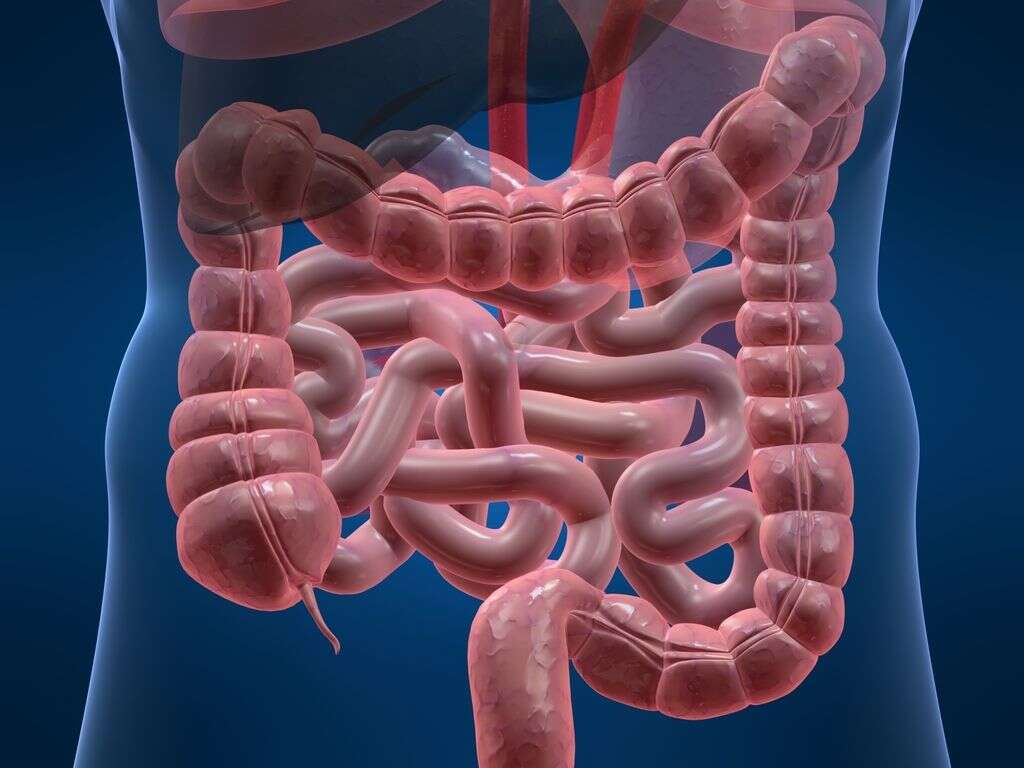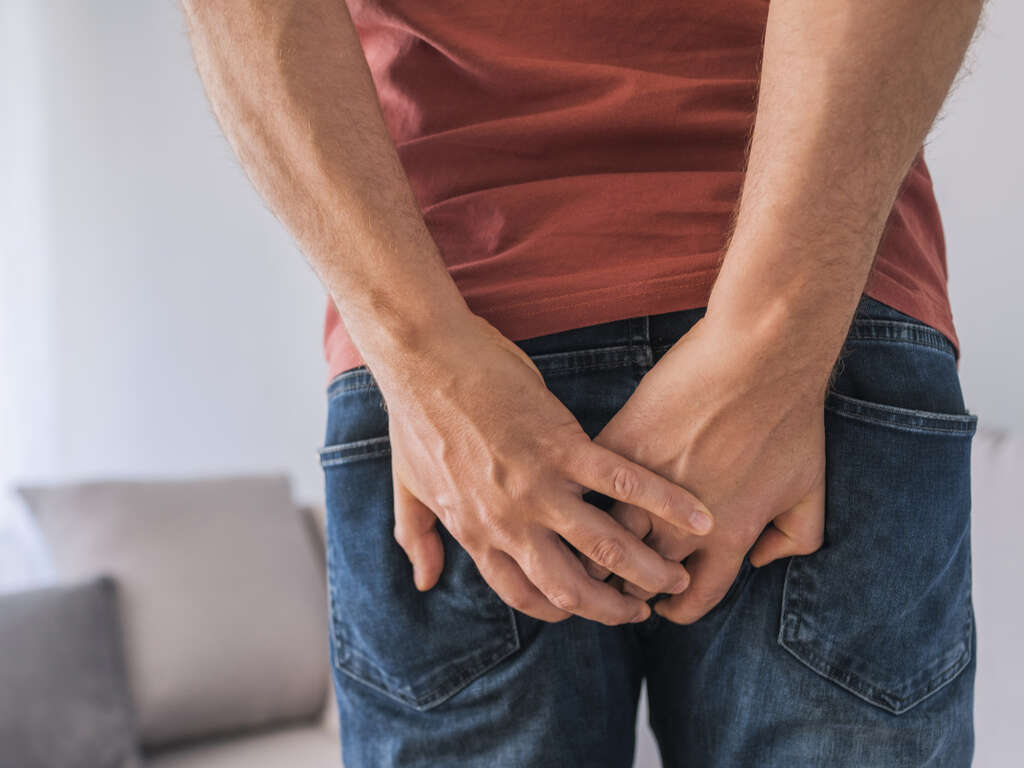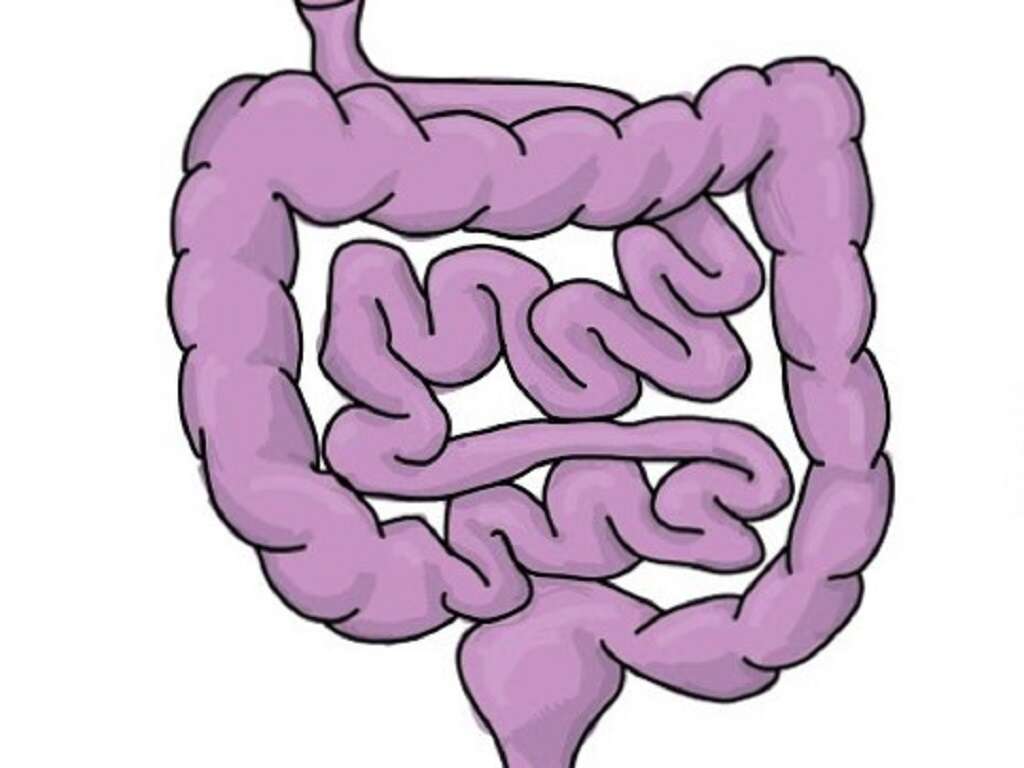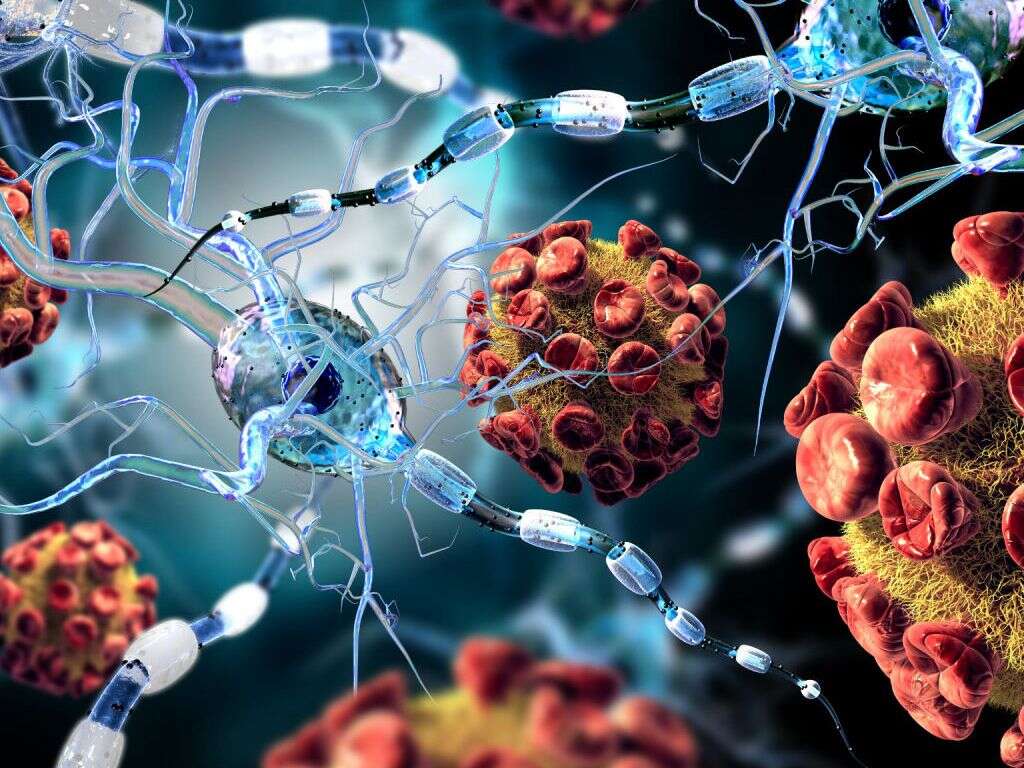10 Bowel Obstruction Symptoms
Bowel obstruction or intestinal obstruction refers to functional or mechanical obstruction of the intestines preventing the movement of digestive products. Either the large or small intestines can be affected. Some of the causes of bowel obstruction include hernias, adhesions, volvulus, inflammatory bowel disease, endometriosis, diverticulitis, appendicitis, tumors, intussusception, and more. The most common causes of small bowel obstruction are hernias and adhesions. In the large intestines, the obstructions are most commonly caused by volvulus or tumors.
The diagnosis of a bowel obstruction can be made based on the patient’s history, physical examination, and medical imaging (X-ray, computed tomography scan, ultrasound, or magnetic resonance imaging). Treatment of bowel obstruction can be conservative or surgical. Intravenous fluids and pain medications can be given. Complications of bowel obstruction include bowel ischemia, sepsis, and perforation.

Symptom #1: Abdominal Pain and Cramps
Abdominal pain or stomach ache is a symptom that can be seen in both serious and non-serious conditions such as gastroenteritis, irritable bowel syndrome, appendicitis, abdominal aortic aneurysm, ectopic pregnancy, diverticulitis, and more.
The abdomen can be divided into nine regions: right hypochondriac, epigastric, left hypochondriac, left lumbar, umbilical, right lumbar, right iliac, suprapubic, and left iliac regions. The pain felt in the different regions of the abdomen can provide clues to the underlying condition. In bowel obstruction, there is pain as the bowels are contracting (cramps) trying to push past the obstruction.

Symptom #2: Loss of Appetite
Loss of appetite or anorexia is a common and non-specific symptom that is often seen in various conditions. In an infection, appetite loss is thought to be part of the acute phase response triggered by the different components of the infective organism.
Loss of appetite can be seen in pneumonia, anxiety, appendicitis, cancer, kidney disease, heart failure, dehydration, dementia, fever, hypothyroidism, metabolic disorders, and more. In bowel obstruction, loss of appetite may occur due to the increased intraabdominal pressure, nausea, abdominal pain, and cramps.

Symptom #3: Constipation
Constipation is a term that describes hard or infrequent bowel movements of stool that is often hard and dry. It is often associated with abdominal pain and bloating and can result in hemorrhoids, fecal impaction, and anal fissure. There are many causes of constipation such as pelvic floor disorders, irritable bowel syndrome, diabetes, hypothyroidism, celiac disease, colon cancer, inflammatory bowel disease, diverticulitis, and more.
Patients with constipation are often recommended to eat more fiber, drink more fluids, and exercise. Laxatives such as a stool softener, osmotic agent, or bulk-forming agent can be helpful. However, in bowel obstruction, you must seek medical attention as soon as possible to prevent further complications.

Symptom #4: Nausea
Nausea is an uncomfortable and unpleasant sensation where there is an involuntary urge to vomit. Although there is no pain, it can be a debilitating symptom as it can cause discomfort on the abdomen, chest, and throat.
It is a non-specific symptom that is seen in migraines, motion sickness, fainting, hypoglycemia, food poisoning, gastroenteritis, and more. It can be managed with the help of medications, but if you suspect that you might have a bowel obstruction, you shouldn’t take any medications without proper diagnosis and guidance from a healthcare professional.

Symptom #5: Inability to Pass Gas
Gas in the digestive system is considered part of the normal processes of digestion. The gas is expelled through burping or passing gas (flatus). If the gas is trapped and is not moving well through the digestive system, the trapped gas can cause pain and cramps.
The affected patient would have a feeling of fullness or feel bloated. The abdomen can appear distended and upon examination, it may feel tight.

Symptom #6: Abdominal Swelling
Abdominal swelling or distension occurs when the gas or fluid accumulate inside the abdomen causing an outward expansion. It is usually a symptom of conditions such as inflammatory bowel diseases, parasitic infections, bowel obstruction, food poisoning, celiac disease, and more.
Patients who experience abdominal swelling often complain of feeling bloated. Other associated symptoms include pain, nausea, cramping, and in severe cases, shortness of breath. The intra-abdominal pressure can be relieved by passing gas (farting) or burping.

Symptom #7: Loud Bowel Sounds
Loud bowel sounds, or a stomach rumble is a sound produced by the peristaltic movements of the gastrointestinal tract. Bowel sounds can usually be heard using a stethoscope. Sounds loud enough to be heard with bare ears is also known as Borborygmus.
These sounds occur as the contents of the intestines move forward. Loud sounds can be caused by incomplete digestion of food, digestive disease, hunger, and more.

Symptom #8: Vomiting
Vomiting or barfing refers to the involuntary and forceful expulsion of the stomach contents through the mouth and nose. It is a non-specific and common symptom that can be seen among those who are pregnant and in cases of gastritis, food poisoning, increased intracranial pressure, brain tumors, and more. Vomiting can be preceded with or without nausea.
If you are experiencing any symptoms related to bowel obstruction (including nausea and vomiting), you shouldn’t take any medications without consulting with a healthcare professional. Proper and early diagnosis are vital to achieving a good outcome.

Symptom #9: Diarrhea
Diarrhea occurs when there are three or more loose bowel movements a day. Diarrhea can result in dehydration, irritable behavior, decreased urination, tachycardia, loss of skin color, decrease in responsiveness, and unconsciousness. Diarrhea can be caused by viral, bacterial, or parasitic infection that affects the intestines.
Other causes include lactose intolerance, celiac disease, irritable bowel syndrome, hyperthyroidism, and more. In bowel obstruction, although there is obstruction in the gastrointestinal tract, diarrhea can still occur due to liquid stool leaking around a partial obstruction.

Symptom #10: Rectal Bleeding
Rectal bleeding or hematochezia describes the passing of blood from the anus that is often mixed with blood clots or stool. It may be present in the stool, toilet bowl, or toilet paper.
Causes of rectal bleeding include constipation, anal fissure, hemorrhoids, hard stools, angiodysplasia, Crohn’s disease, diverticulosis, proctitis, ulcerative colitis, cancer, and more. Rectal bleeding is also a symptom in the case of obstruction due to a colon tumor.












